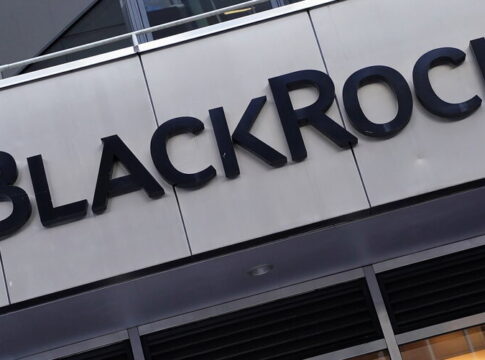BlackRock Inc., the world’s largest asset manager, has made significant strides in the Middle East, unveiling plans to establish a formidable presence in both the UAE and Saudi Arabia. With the recent acquisition of a commercial license in Abu Dhabi, BlackRock is poised to operate within the Abu Dhabi Global Market (ADGM), positioning itself to collaborate with sovereign wealth funds and investment vehicles. This strategic move underscores the company’s dedication to fostering AI infrastructure and transition-focused solutions in the region.
Simultaneously, BlackRock is setting the stage to launch its regional headquarters in Saudi Arabia, reinforcing its commitment to the Gulf Cooperation Council’s (GCC) largest economy. The establishment of BlackRock Riyadh Investment Management (BRIM), backed by a $5 billion investment from Saudi Arabia’s Public Investment Fund (PIF), marks a critical step in transforming the kingdom’s asset management landscape. This initiative aligns with Saudi Arabia’s Vision 2030, a multi-trillion-dollar project aiming to diversify its economy and reduce reliance on oil revenues.
The UAE and Saudi Arabia present a myriad of investment opportunities extending beyond traditional oil industries. As BlackRock navigates its expansion in the region, several sectors appear ripe for growth and investment in various sectors.
Renewable Energy: Both nations are investing heavily in solar and wind energy projects. According to the International Renewable Energy Agency (IRENA), the UAE and Saudi Arabia have some of the world’s largest solar parks, with projects like the Mohammed bin Rashid Al Maktoum Solar Park in Dubai and the Sakaka Solar Power Plant in Saudi Arabia paving the way for a greener future. These initiatives align with BlackRock’s focus on sustainability and decarbonization.
Technology and Innovation: The UAE has established itself as a tech hub, with Abu Dhabi and Dubai leading in Smart City initiatives. Similarly, Saudi Arabia is pushing forward with its NEOM project, a planned $500 billion smart city. These projects offer lucrative opportunities for tech investments and the potential for partnerships in AI and digital infrastructure.
Tourism and Entertainment: Saudi Arabia’s Vision 2030 outlines ambitious plans to boost tourism, with mega-projects like the Red Sea Project and Al-Ula heritage site development. The UAE, known for its dynamic tourism sector, continues to expand its global attraction through events like Expo 2020 Dubai.
Healthcare and Pharmaceuticals: The GCC’s healthcare sector is growing, driven by increasing demand for quality healthcare services. The UAE and Saudi Arabia are enhancing their healthcare infrastructure, opening doors for investments in hospitals, clinics, and biotechnology.
Logistics and Infrastructure: Both nations are investing in logistics and transportation infrastructure, with projects such as UAE’s Etihad Rail network and Saudi Arabia’s land bridge project facilitating regional and international trade.
Dr. Karen Young, a senior researcher at Columbia University specializing in Gulf economies, notes, “The Gulf States are not just oil giants; they are diversifying their economies aggressively. This diversification is creating vast opportunities for foreign investors, and BlackRock’s strategic presence is a testament to the region’s potential.”
Insiders reveal that BlackRock is in preliminary talks with several local tech firms to explore partnerships focused on AI and data analytics, vital components for future-ready economies. These collaborations could potentially enhance regional tech capabilities and position BlackRock as a key player in the Middle East’s digital transformation journey.



